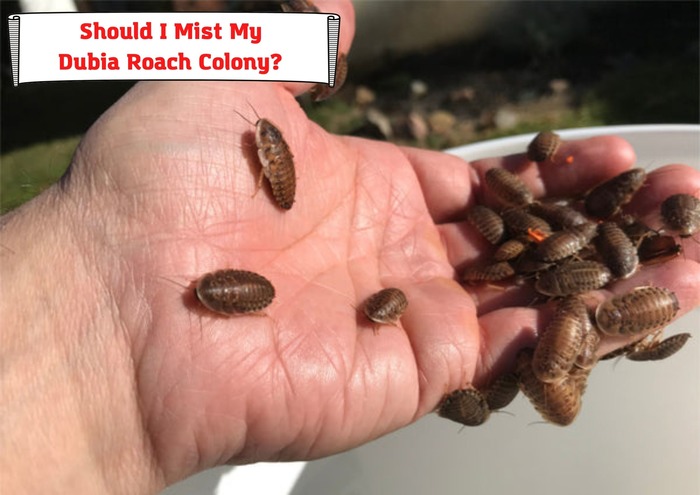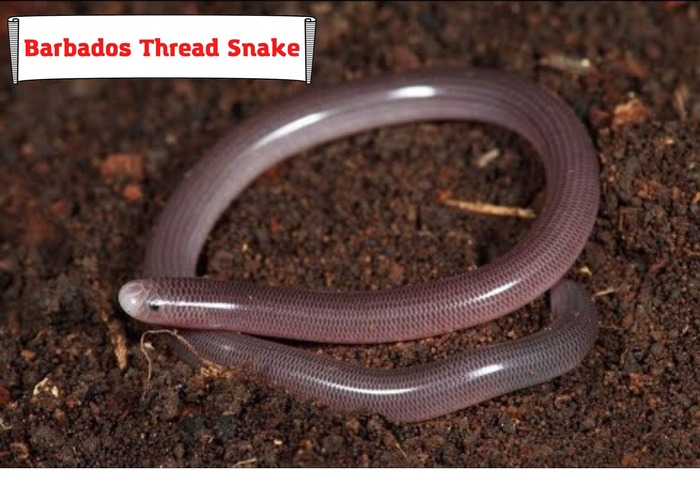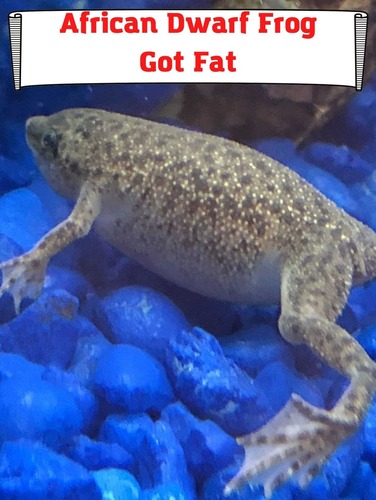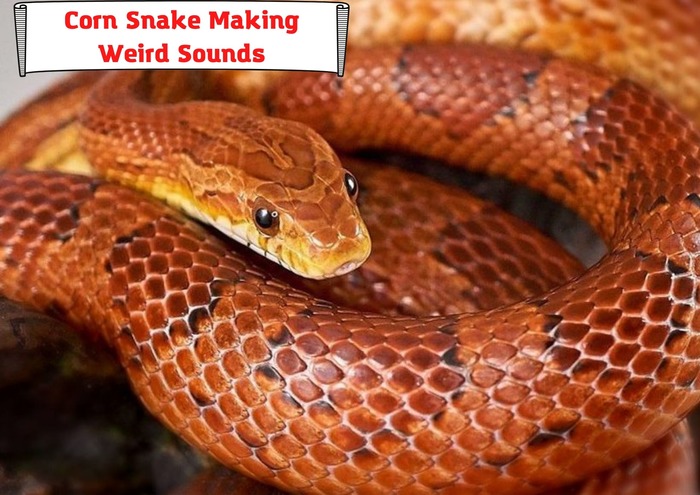
Sometimes, out of the blue, you find your corn snake making weird sounds. For most, your snake has been making these noises for months. Almost as if they are wheezing, squeaking, or whistling. It’s not in every breath but it’s there.
The thing is, snakes aren’t very reactive to illness. They endure it stoically, with minor signs, if any. So if your snake is sick, you won’t know it right away.
Those weird noises that your snakes make? They could be an indication of something sinister taking its roots inside your snake, like a respiratory infection or a parasite attack, a cause that could need immediate attention from a vet.
This reason is why you need to know and be prepared. Here are a few possible explanations with some sideline tips on why your snake whistles, wheezes, squeaks, and what you should probably do about it?
Why Is My Corn Snake Making These Weird Sounds?
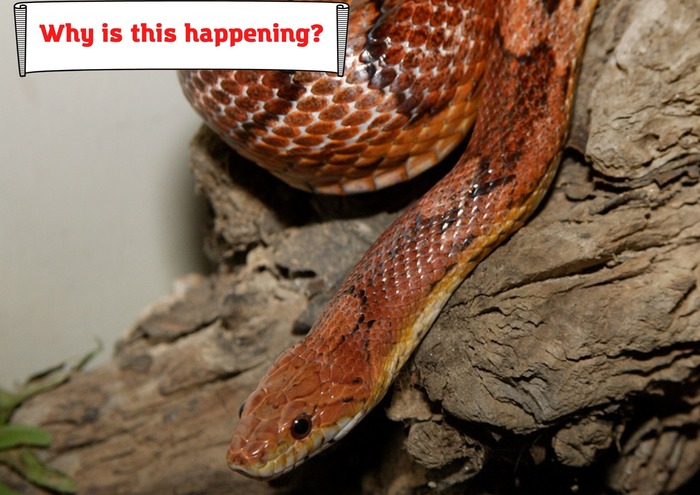
Your snake may wheeze, whistle, sneeze and squeak. All either a sign that they may have issues breathing – a trait undermining an illness. Or, it could just be a temporary phase that’s not a cause of concern. There are several possible answers as to why your corn snake may make weird sounds.
Respiratory Infections
Respiratory infections are usually present where a snake breathes or wheezes with too much force and noise. They may gasp with their mouth open because it’s taking your corn snake’s effort to breathe. You may also find them blowing bubbles or producing stringy saliva out of their mouth. You should check any signs of red spots on the sides of the tank. It could be that your snake may be sneezing out blood due to the infection.
Typically, in such cases, you may find your snakes to have a loss of appetite, or they may act lethargic.
These are all indications of your snake having a Respiratory infection.
Sometimes, snakes transfer pathogens to one another, an organism that causes an infection and is diverse in its composition, entailing properties of a virus, bacteria, and eukaryotes. It’s contagious by nature.
Other times, microorganisms attack the snakes’ immune system, which drives the infection.
These attacks commonly occur when the snakes don’t have access to their basic needs. Or the humidity and temperature levels of where they are located is inappropriate. It should not go below 75 degrees F.
Poor hygiene rotting mouth could also be a factor that could lead to respiratory infections.
Parasites
Parasites can also infect your snake’s breathing tract, both internal such as worms and coccidia, or external parasites like mites. Some parasites, such as Pentastomids, live inside the respiratory route of snakes. They can spread out and infect snakes and humans, making it critical and urgent to have preventive measures.
Another common parasite that lives and grows inside the lungs of your snake is a worm from the Rhabdias family.
Parasites are generally hard to detect visibly but they are a common cause of why your snake could be wheezing. A physical or a fecal test can confirm the existence of the parasite.
Rough shed
However, snakes also make a wheezing, clicking sound, or squeak when they are close to shedding their skin. This is normal. Snakes shed, and it is not a cause of concern. The weird noises will stop in a day or two after the shedding.
You can make this shedding process easier for your corn snake by ensuring that they are kept adequately hydrated. Soaking them in lukewarm water at least once a day for a few hours should do the trick.
Nostrils
It could be that a piece of skin while shedding, a bit of bedding, or particles of dust get caught in the nostril of your snake. The snake has to put force to push it out, and this pressure causes a squeaky popping sound to come from its nostrils.
Environment
Some snakes have a quirk, and they make noises when they are stressed or nervous. This nervousness can be because they are not accustomed to their environment or being handled by you. Corn snakes, in particular, are docile. They shy away from what they consider a threat—which, being new, could be you.
Handling
Handling your corn snake may be a good chance for you to increase familiarity with it or for you to tame your snake. It also helps as a beneficial medium of exercise.
But this social interaction with your snake has its limitation. Your snake may not be comfortable with you yet, and they may squeak when you handle them. So make sure not to handle them more than once in 7 to 14 days.
Especially seeing how your corn snake doesn’t need it for better mental health.
Depresses or Stressed
Snakes may also make weird noises when depressed, strained, or stressed out. All of these could also be a sign that your corn snake may need your attention. These conditions may make them more vulnerable to parasite attacks and infection.
What To Do If Your Snake Makes Weird Noises?
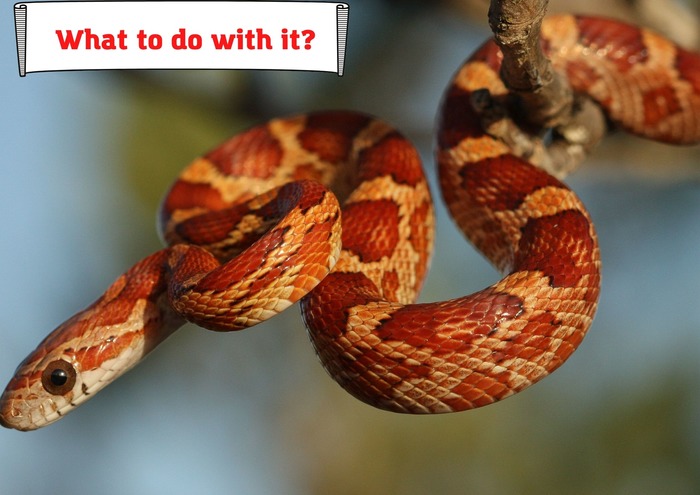
Quick Action
Most snakes have one functioning lung to support their system, except for a python and a boa. It takes the space from its hind end to its heart and can be critical to their survival, leading to death when not timely treated.
Quarantine
Snakes have a soft, quiet breathing pattern. A respiratory infection can disrupt this easy flow, and the organism causing this disease can be viral, bacterial, or fungal. And thereby, in instances where a snake wheezes and is seen to have indications of a respiratory infection or a parasite attack, the practical measure of protection is to undertake quarantine procedures for the snakes, taking particular care of the present level of their hygiene.
Force-feed
Corn snakes can also survive for a long time without food, from weeks to months, as their metabolism is sluggish. Therefore, a loss of appetite in infection will only be a reason of concern where your corn snake is seen to be losing weight. In this case, you would have to force-feed them. Especially considering how they will be more open to parasite attacks if they are unfed because they will be weak and vulnerable.
Adjust Temperatures
You would also need to manage the temperature of where the snakes are kept. As they are very delicate and have a susceptible respiratory system, the environment they are kept in has a severe impact on them. An acceptable temperature range is a minimum of 75 degrees for the colder end of the tank and 85 degrees for the hot end. Close care is needed in keeping these levels adjusted, or else you could damage your snake’s health by exposing them to growing bacterial and viral organisms.
Add a Humidifier
Adding a humidifier to your snake’s tank can make it easier for them to breathe. This ease is possible because the increased level of heat and humidity helps unclog accumulated mucus. You can also opt for a pre-made humidifying tank or choose to make your own by attaching an open, ventilated tank with a separate humidifier.
Vet
Consulting a vet specialized in caring for reptiles will not only be a cause of relief for you, but it will also help your snake identify and uproot any illness at its early stages.
The treatment of your corn snake will depend on the type and severity of the infection. Your corn snake may have to go through X-rays, blood tests, and physicals.
However, most infections are bacterial, which may enter the bloodstream of your snake and become detrimental to its health if not treated immediately. Your corn snake will require timely and correct dosages of anti-biotics to recover your corn’s snake health, either through the mouth or it will be injected into your snake’s system.
The vet can also suggest some changes and pointers that can help you cater to your snake’s health for the better.
After Care
You can make specific changes to ensure your corn snake recovers quickly or feels more comfortable than before.
- Ensure that your corn snake’s tank is kept clean. Using substrates that are easy to clean will make this process easier.
- Corn snakes do not need special lighting to survive, but keeping a fluorescent light with low Ultraviolet B-light may help improve their viewing.
- Keep the proper temperature (a heating pad as a replacement) and a humidifier (with confirmation of how often it needs to be used).
- You should also keep a large bowl of fresh water for your snake to soak in.
The Takeaway
Snakes are usually silent, with an occasional hiss here and there. They don’t communicate very often, even with their species, unless they breed. So, hearing them make these sounds is surprising, and rightly so because they could indicate underlying issues in their health.
As their caretaker, you’re the one who must look after your corn snake’s health. Hopefully, this article will give you the guidance you need to ensure they stay well.
- Can Dart Frogs Swim? Some Facts about Dart Frog in the Water - February 24, 2022
- Is Superglue Safe For Reptiles? Good Brands and Types of Glue - February 21, 2022
- Can You Put A Heat Lamp On Glass? Some Concerns and Recommendations - February 19, 2022

